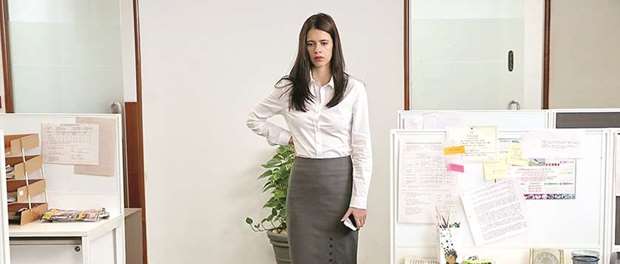The quirky and compelling Kalki Koechlin essays a dysfunctional French immigrant in an Indian metropolis struggling against and being defeated by loneliness and discrimination in The Job, a strange and disturbing short film produced by Kushal Shrivastava who directed last year’s whimsical thriller Vodka Diaries - and directed by Siddharth Sinha.
For some of the 15-odd minutes of running time, we see Kalki washing her hands in the restroom of her workplace. This is a suburban recreation of William Shakespeare’s Lady Macbeth who, stricken with guilt washes her hands over and over again trying to rid herself of the imaginary blood on her hands.
It is not only the blood that is imagined by this unnamed French woman, frightening in her forlornness struggling to articulate her inner demons. We see her indulge in conversations with entities that only she can see: her bully of a boss, a credit-card consultant on the phone, her pet cat on the floor whom she feeds milk and her ailing mother on the bed who implores the daughter to take it easy and yes, to carry the bag to work that suits her dress.
We don’t see these people. We only take Kalki’s word for it. And her word, we soon realise, is not dependable as she is a neurotic, paranoid woman whose consciousness has collapsed into a delusional heap. The actress delivers yet another persuasive performance pulsating with paranoiac possibilities.
The aura of desolation and desperation that Kalki creates in this disturbing yet not fully satisfying short-film creeps up on us in sinister shapes that claim our sanity, challenging us to see urban neurosis as a sickness that is rapidly growing endemic.
Kalki is effective in portraying the scourge of suburban spinsterhood.
The Job is also a statement on the migrant’s plight in a strange land riven with crimes and discrimination. Who knows what evil forces have been unleashed on this French woman to drive to this desperate state of self-abnegation? The Job has more questions than answers. It relies entirely on its lead actress’s ability to convey angst in times of excruciating crisis. And I am not entirely sure that is a good thing or bad. — IANS

POWERFUL: The actress essays a dysfunctional French immigrant struggling against and being defeated by loneliness and discrimination.
